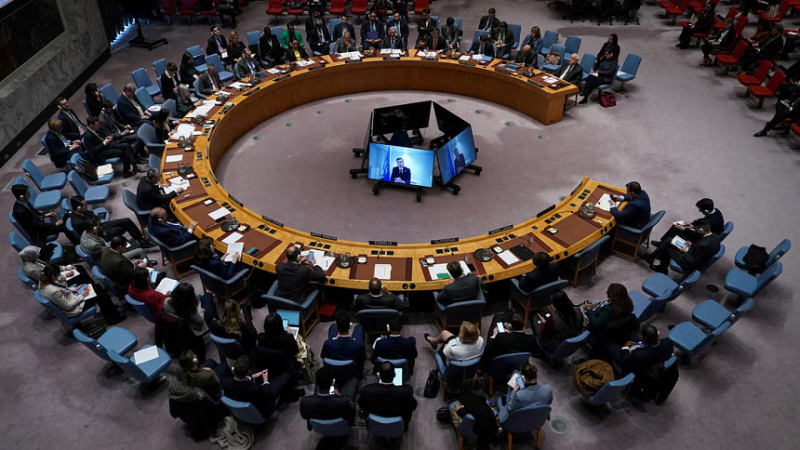- Intimidation or bloodshed cannot halt Bangladesh’s march to democracy |
- Khaleda Zia integral to an important chapter in BD history: Yunus |
- Enthusiasm marks Victory Day celebrations across Bangladesh |
- Dhaka-Delhi ties deep; to be shaped by trust, dignity, mutual respect |
- EU deploys election observation mission to Bangladesh |
UN Plans Major Reforms Amid Deepening Funding Crisis

The United Nations is weighing major structural reforms that could consolidate key departments and reallocate global resources, according to a confidential internal memo prepared by senior officials leading reform efforts.
The six-page document outlines proposals to merge dozens of UN agencies into four core departments: peace and security, humanitarian affairs, sustainable development, and human rights. Among the suggestions is a plan to combine the operational roles of agencies such as the World Food Programme, UNICEF, the World Health Organization (WHO), and the UN refugee agency into a unified humanitarian body.
The memo also recommends merging the UN AIDS agency into the WHO, reducing the number of translators at meetings, and even exploring the possibility of integrating the World Trade Organization—though it is not a UN entity—into the UN’s development framework.
The internal review highlights long-standing issues such as “overlapping mandates,” “inefficient use of resources,” and “fragmentation and duplication,” which have led to mounting costs and an expansion of senior-level positions. It acknowledges “systemic challenges,” worsened by an increase in General Assembly mandates without clear exit strategies.
The review was initiated in March by Secretary-General António Guterres, who has repeatedly called for reforms to improve cost-effectiveness. The memo forms part of a broader, long-term restructuring strategy aimed at addressing the organisation’s financial and operational inefficiencies.
The UN is currently grappling with one of the most severe financial crises in its 80-year history. At the start of the year, its largest donor was behind on mandatory payments—owing $1.5 billion for the regular budget and $1.2 billion for peacekeeping. Substantial cuts in foreign aid, particularly from the United States, have further strained resources.
The resulting shortfalls have already had significant consequences. The UN humanitarian office has reduced its staff by 20% to manage a $58 million funding gap. UNICEF expects a 20% drop in its budget, while the migration agency anticipates a 30% reduction, threatening up to 6,000 jobs. “We’re cutting rations in refugee camps,” said the president of the UN’s Economic and Social Council, calling the situation devastating.
To curb spending, the memo also suggests relocating staff from high-cost cities to more affordable locations and merging overlapping offices, including operations in Rome. A separate internal note directed senior officials to identify roles that could be shifted away from New York or Geneva by mid-May. Staff supporting the General Assembly and Security Council would remain in New York.
The memo acknowledges that the proposals range from minor to transformative, but taken together, they would represent the most extensive reforms to the UN system in decades. A senior official described the memo as a starting point in realising the Secretary-General’s long-standing vision of a more streamlined and effective United Nations.

